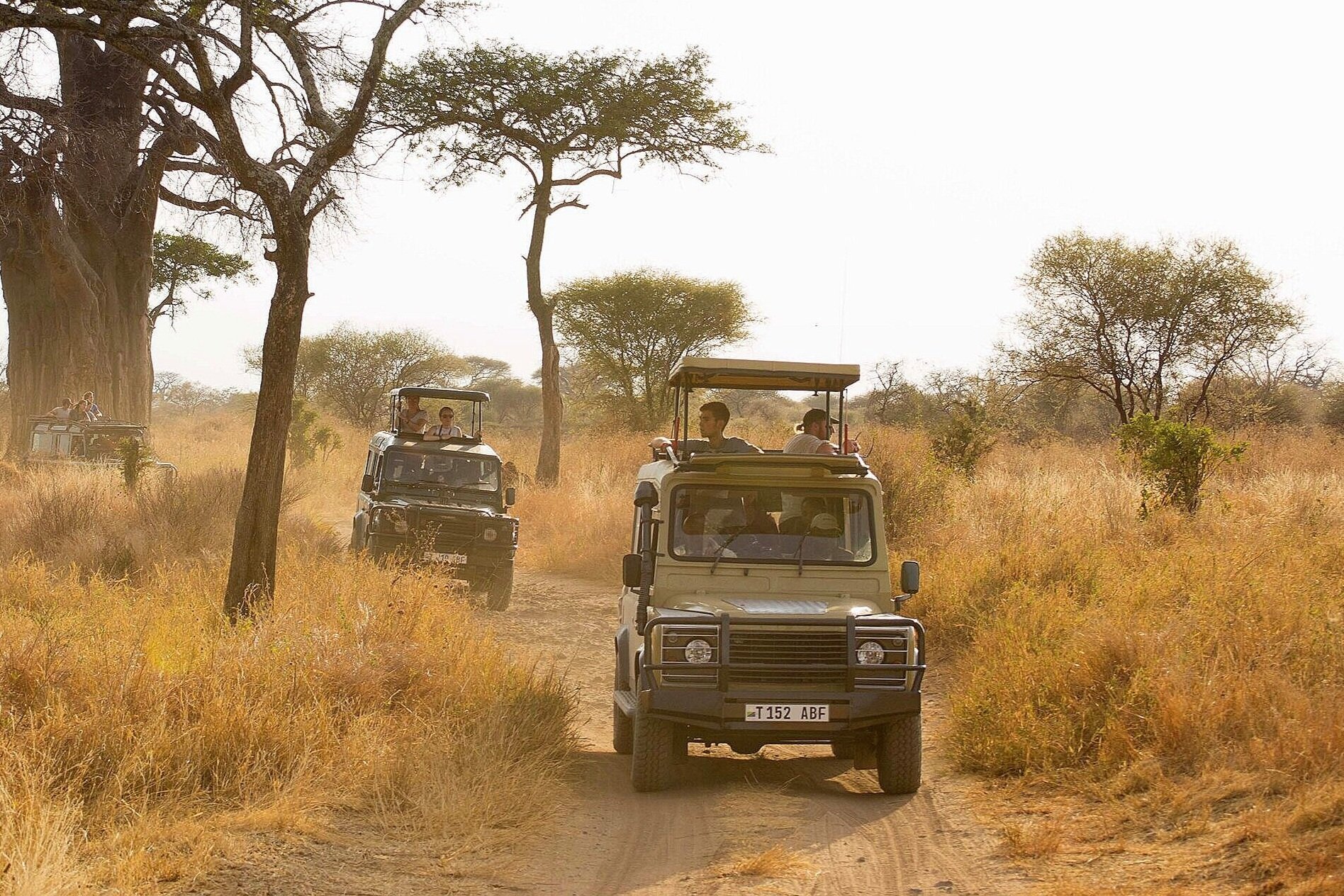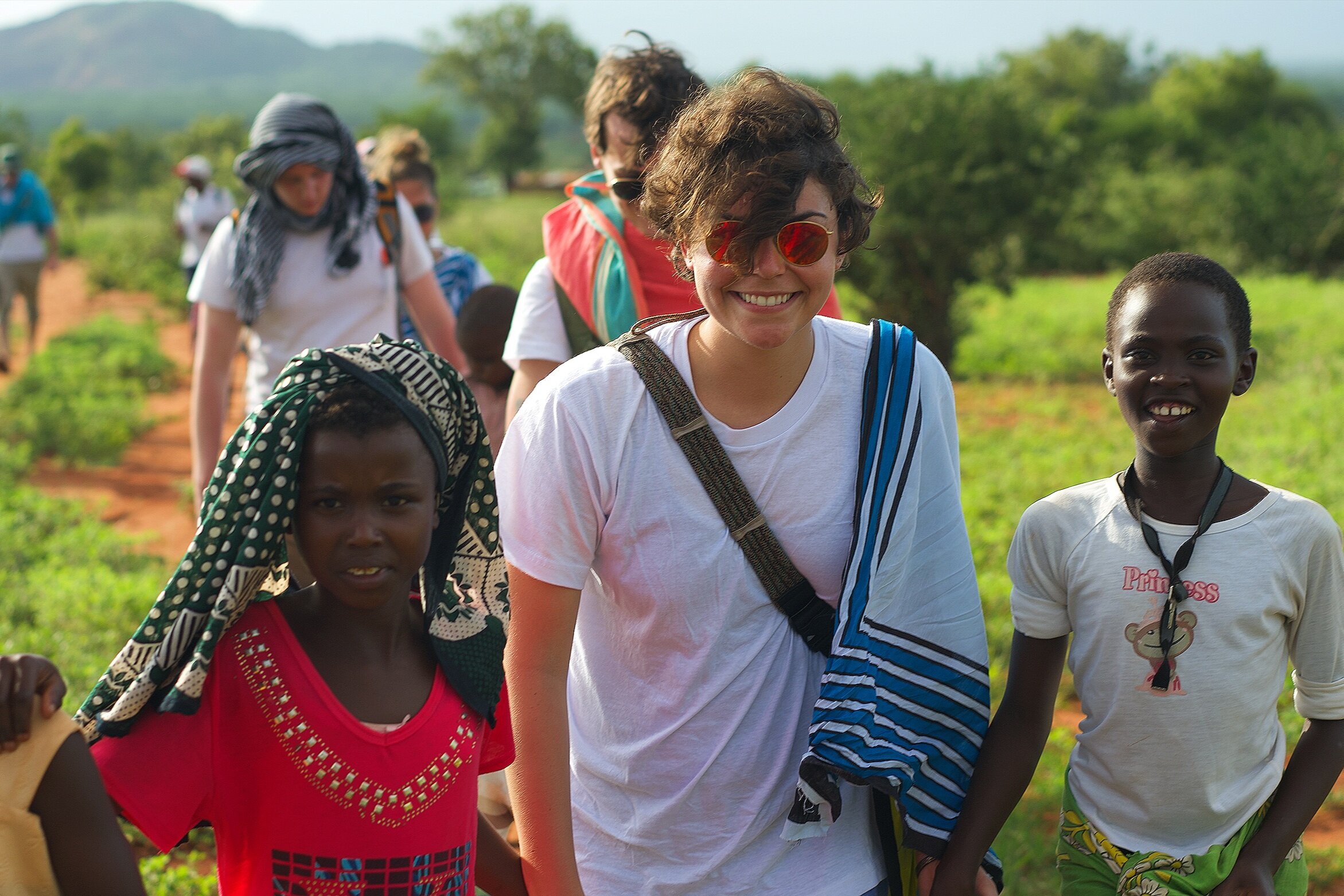
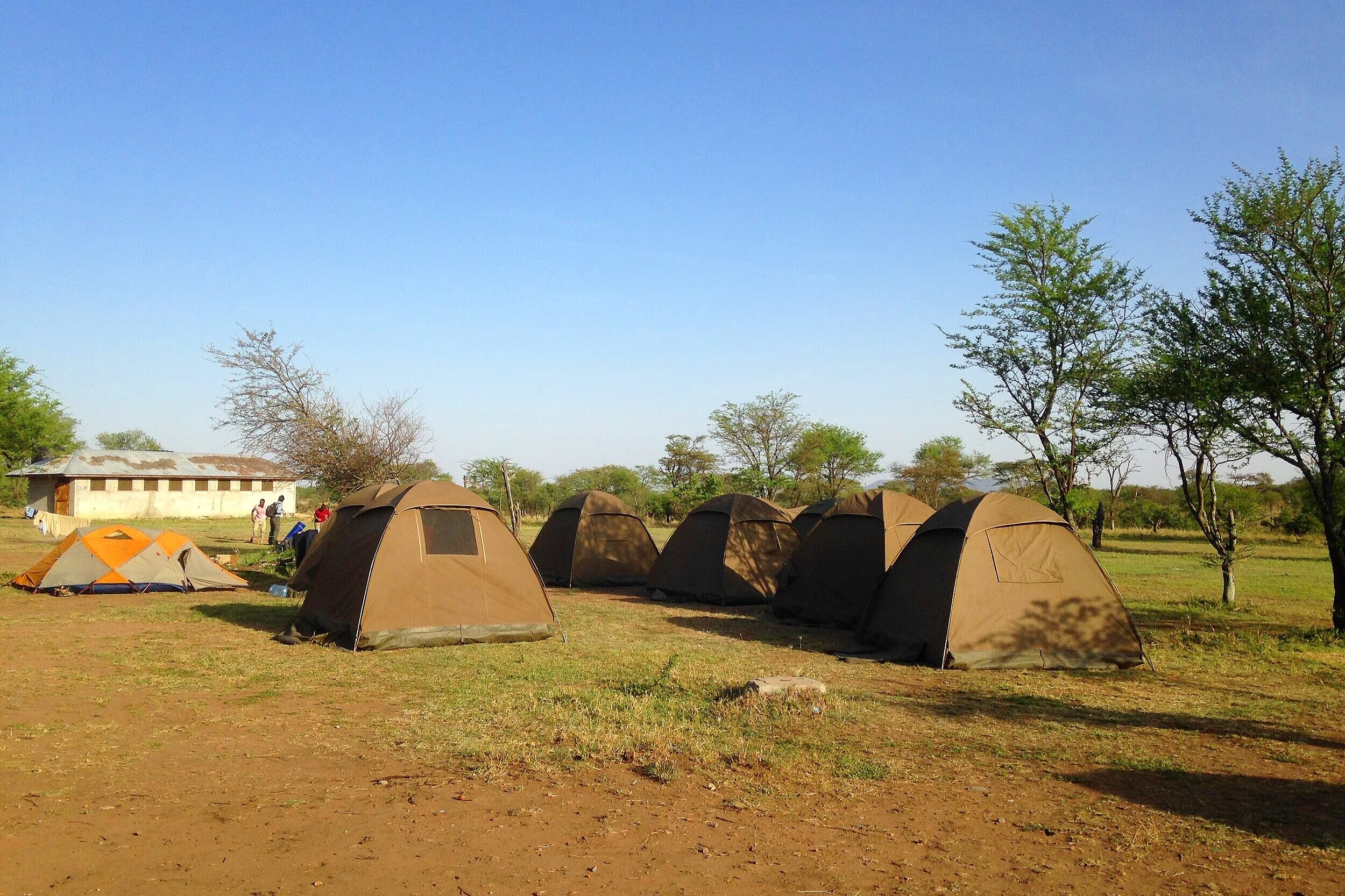
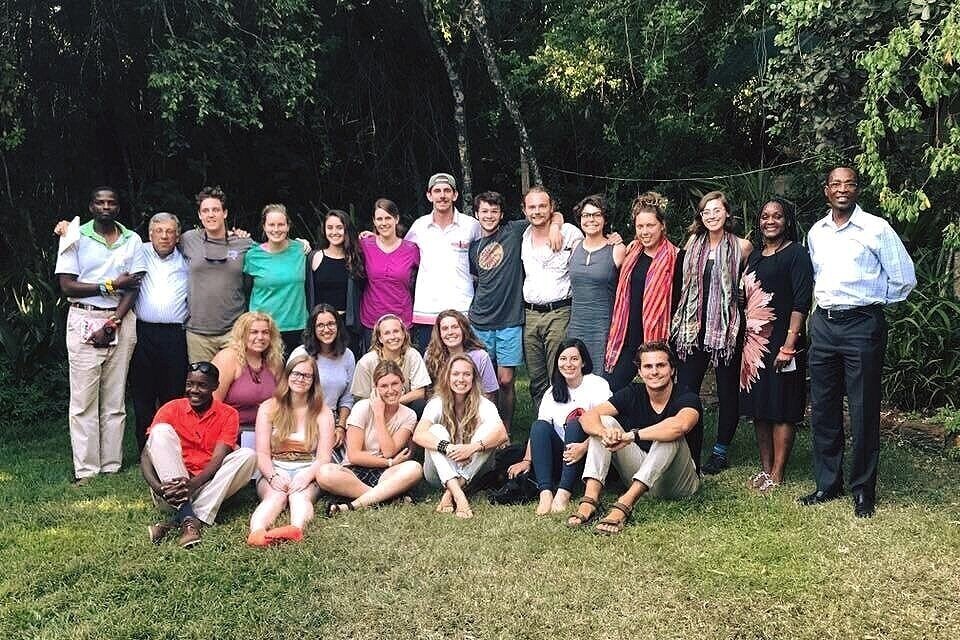
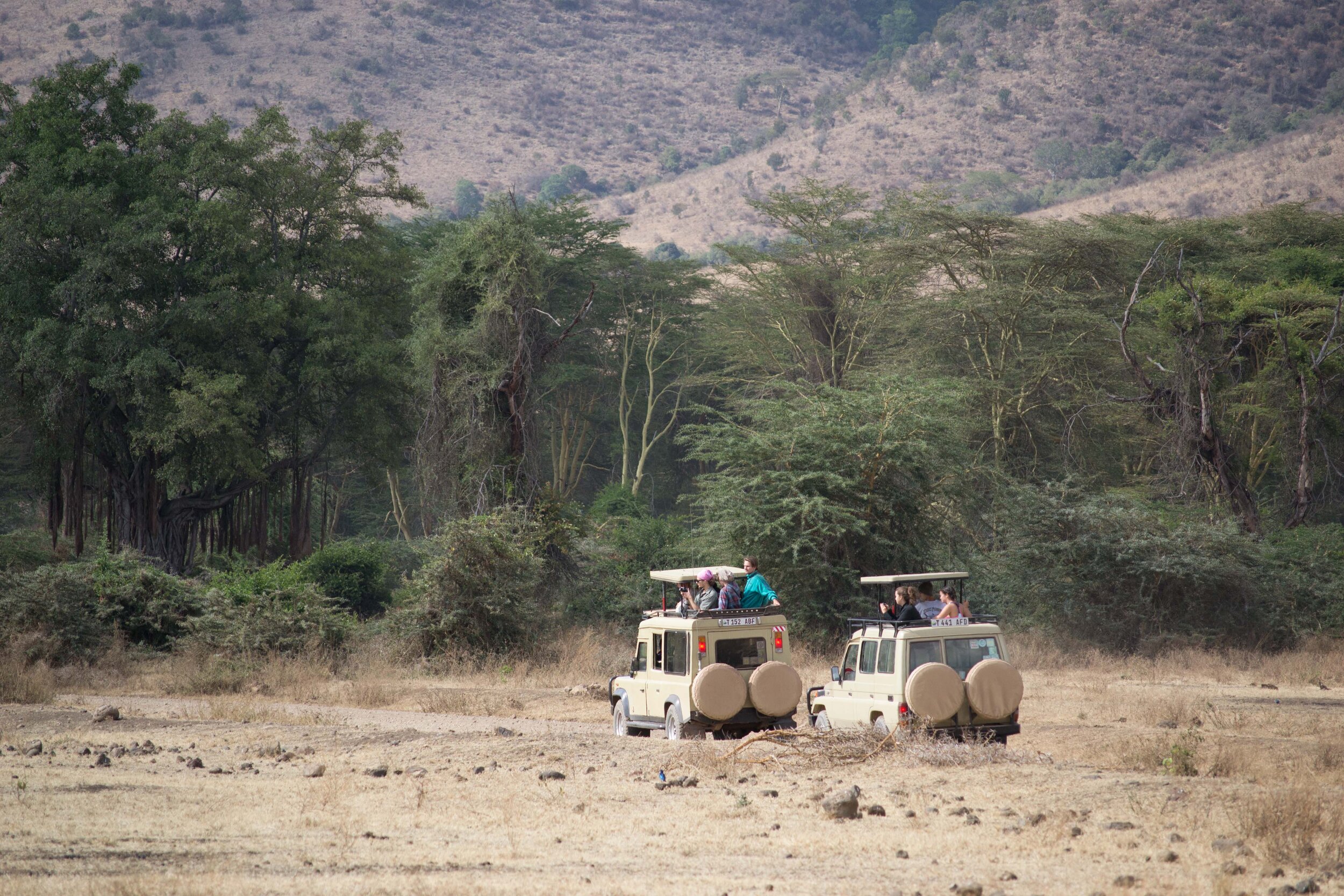
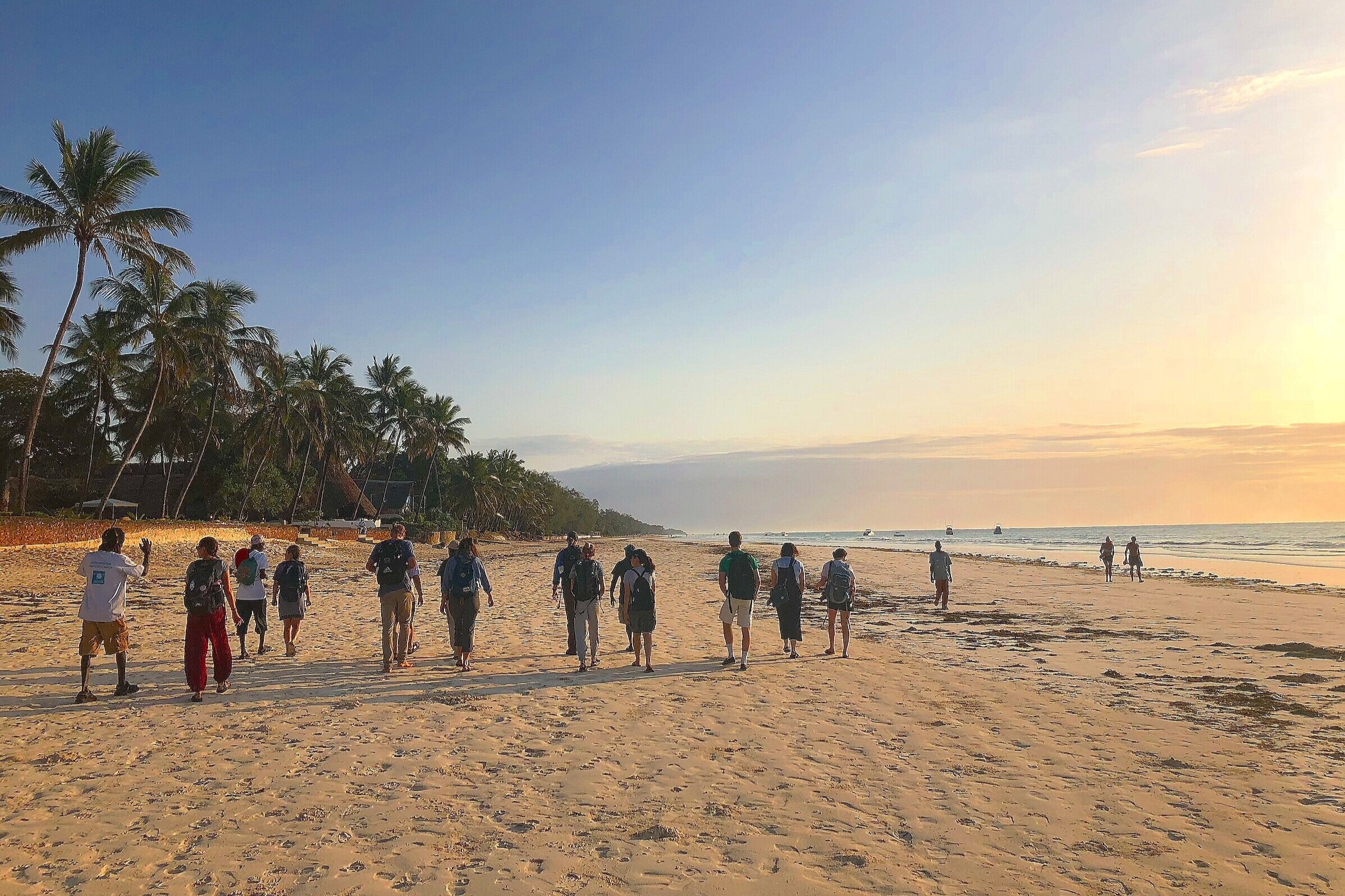

Summer Session
Embark on a transformative 1-month summer program in the heart of East Africa with RIDE! Join our community development and local conservation efforts in Kenya and Tanzania, co-taught by our experienced Regional Director and your esteemed faculty. Immerse your students in hands-on field studies, engaging with local communities in northern Tanzania's Arusha region, the enchanting Kasigau in Kenya, and the pristine Diani Beach. This unforgettable journey will empower your students to become global citizens and drive meaningful change while fostering a deep appreciation for the region's diverse landscapes and vibrant cultures.
Key Points
Our Summer Session Program offers university students the opportunity to partake in field studies, exploring the rich cultural heritage of the Arusha region and conservation efforts in northern Tanzania as well as sustainable development initiatives in Kasigau and Diani Beach in Kenya.
Credits: 4-8
Dates: Anytime May to August
Length: Typically 1-2 months
Locations: Kenya & Tanzania (explore all possible program locations below)
Course topics: Wildlife Conservation, Sustainable Agriculture, Cultural Revival, Community Empowerment, Environmental Resilience
Cost per person: $2,500-$4,000 which covers all meals, housing, in-country transport, excursions, and local instruction. Learn more at our Cost Structure page.
A Cross-Cultural Adventure in Kenya and Tanzania
Join RIDE on the immersive 1-month Summer Session Program, exploring community development and local conservation efforts in the heart of East Africa. Led by RIDE's Regional Director, Kahindi Lekalhaile, in collaboration with your university's faculty, this transformative experience will take place over the summer break, typically in June. Delve into hands-on field studies, engaging with local communities, and discovering the diverse landscapes of northern Tanzania (Arusha region & Mazumbai Forest) and the enchanting Kasigau (Kiteghe Field Centre) and Diani Beach in Kenya.
Program Highlights
Hands-on field studies in community development & conservation
Direct engagement with local communities and stakeholders
Co-taught by RIDE's Regional Director and university faculty
Exploration of diverse landscapes, from lush forests to pristine beaches
Immersive cultural experiences and authentic interactions
Camp with African wildlife — no personal equipment needed!
Let RIDE design an unforgettable journey that fosters global perspectives, sparks academic growth, and empowers your students to become catalysts for positive change in East Africa's vibrant communities. Contact us to customize this program for your students and embark on a life-changing experience with RIDE.
Read more details about the summer program in the next section below.
Program Details
-
Designed with both academic and personal growth in mind, RIDE's summer interterm programs provide prospective students with the chance to expand their global perspective, develop cross-cultural skills, and foster lifelong connections. Whether studying wildlife conservation, sustainable development, or cultural anthropology, students will have the chance to learn from local experts, collaborate with peers, and actively contribute to meaningful projects, leaving a lasting impact on both themselves and the communities they engage with.
The entirety of the summer session will be spent in the field, with very limited time in the classroom. Course work will include substantial amounts of reading and report writing, field data collection, problem solving, and some analytic work.
LOCAL. KNOWLEDGE
Here at RIDE, we are strong advocates for the utilization of local knowledge in order to greatly enhance our field instruction and research methods for our students. For that reason, the field studies and academics of this program will be taught by RIDE faculty in conjunction with local experts and instructors, providing an authentic learning experience for our students. While our faculty might be a citizen of a country that we work in and have an extensive understanding of the inner-workings of that country, the advantages of receiving expertise from a local authority on the matters of a specific community are immeasurably vital to successful learning.
-
Week 1-2: Arusha, Tanzania
In the Arusha region, delve into the rich culture and community development initiatives. Collaborate with local organizations, witness sustainable projects in action, and gain insights into the challenges faced by communities in this vibrant region. Engage with experts in the field and experience wildlife conservation efforts in the picturesque Mazumbai Forest.
Week 3-4: Kasigau & Diani Beach, Kenya
Embark on a journey to Kasigau, where you'll be based at the Kiteghe Field Centre. Immerse yourself in community-led conservation projects, work side-by-side with the Kasigau Elephant Guardians, and witness firsthand the impact of promoting sunflower agriculture and women seaweed farmers. Conclude your adventure at Diani Beach, exploring marine conservation and coastal ecosystems.
-
We do not believe that this program should be restricted to students of any one discipline or background. On the contrary, we are proud supporters of diversity and we welcome students of any background, academic interest or to apply for our semester. The only requirements that we have is that you are (1) committed to field work of the program and (2) open to embracing foreign experiences. 2.5 GPA required.
-
MINIMUM REQUIREMENTS
Enrolled in an accredited college or university
In good academic standing
Not on academic or disciplinary probation
2.5 Overall GPA
BEFORE YOU APPLY
We recommend that each student talks with the study abroad advisor at their home school as soon as possible to learn of any deadlines or requirements they may have for study abroad. Email us at info@rideinternational.org if you have any questions about the application process. We’re here to help!
STEP 1 — Online ApplicationPlease first fill out our ONLINE APPLICATION. Be sure to completely fill out the application and submit it by the deadline for the program to which you are applying.
STEP 2 — Request Transcripts
Request your transcript be sent to ISDSI (see more at References & Transcripts).
STEP 3 — Letters of Recommendation & Approval
Request two letters of recommendation and study abroad approval form and have them sent to RIDE (see References & Transcripts ). We need your letters of recommendation, approval form, and transcript by the deadline for your application to be considered complete. Please email us and let us know who will be sending the letters of recommendation.
AFTER SUBMITTING YOUR APPLICATION
Upon securing all of your application materials (online application, letters of recommendation, approval form, and transcript), Program Staff will then review your candidacy for the RIDE program which you applied. If you are accepted as a finalist, additional information will be required in order to complete your enrollment into the program.
-
The theme of the course totally depends on your interests as a faculty or university administrator, ranging from hard science to social studies. Again, we design our programs for students to spend the majority of their trip working directly in the field, with very limited time in the classroom. Course work will include substantial amounts of reading and report writing, field data collection, problem solving, and some analytic work.
Sample Courses:
Climate Change in the Developing World
Sustainable Management of Community Livelihood Resources
Tourism Industry and Community Involvement
Economic Development and Socio-Economic Change
Swahili Language & Culture
-
Through our comprehensive program fee system, RIDE provides all housing and meals for our students throughout the entirety of their program. This includes breakfast, lunch & dinner, which can be catered to work with whatever dietary restrictions On the Summer program, there will be a wide variety of housing accommodations from hostels to cultural homestays to college dorms to bush camping. However, while the housing types might be different, each accommodation has been well-vetted by program staff to ensure a safe, secure and comfortable living environment for our students.
LOCAL CUISINE
Participating in the local food culture is a central aspect of daily life in East Africa, and therefore you should be willing to try the local cuisine. Some special or limited diets may not be fully understood by locals, but our staff does everything in their power to provide students with meals catered to whatever dietary restrictions. All students are welcomed on this program regardless of what dietary restrictions they might have. We will advise you on realistic expectations about avoiding or incorporating certain foods within the program context. However, in some locations, we cannot guarantee zero exposure to certain foods or a given allergen.
-
WHAT GOES INTO THE FEES?
RIDE charges a comprehensive fee, and all of your expenses are covered while on one of our programs. Many study abroad programs hide costs by not charging for food, transportation or other costs that the students have to pay for themselves. We bundle everything into the comprehensive fee so that financial aid will apply to everything. We also put all of the costs towards creating a truly once in a lifetime experience. We have very small language classes (usually 4-5 students per instructor) and teach in teams so that students can get the learning support and individualized instruction they need. For example, a class of 25-30 students will typically have an instructor team of 5 instructors (one lead and 4 field instructors).
In the field we then break into small groups with 3 field instructors. We are also traveling into remote, and sometimes expensive to reach places. This pushes the costs up, but allows our students to go beyond what a tourist might see, and rather than a cheap program where you spend most of your time on a college campus, we are out in remote tribal villages, sea kayaking the islands, and skin diving coral reefs while learning from local communities.
RIDE Comprehensive Fee:
Tuition
All in-country meals
Housing (hostels, dorms, camping, etc.)
In-country books/readers
Program related travel and excursions
Daily drinking water (3 Liters)
Fee Does NOT Cover:
Visas (~$100)
Roundtrip airfare (~$1,300)
Discretionary expenses (~$300)
Personal medical insurance
Students should check with their study abroad office to see if they are able to cover any of the items listed above.
Summer Program in East Africa
We offer transformational experiences for students, travelers, and communities throughout the region. Our student trips are often customized to include multiple program locations within East Africa, which we believe is vital to participants getting a greater sense of regional context and local dynamics. Learn about the diverse ecological areas that RIDE works in by selecting a destination on the map below.









